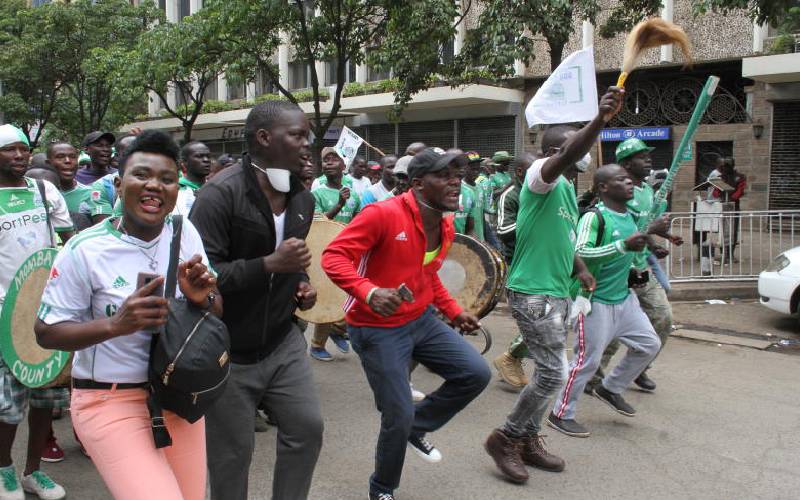×
The Standard e-Paper
Stay Informed, Even Offline

While we celebrated International Women’s Day this past Sunday, President Uhuru Kenyatta and former Prime Minister Raila Odinga were sitting pretty in their VIP box at the Mashemeji Derby with third wheel, the Honourable Musalia Mudavadi. While the men seemed to be enjoying themselves, the match ended in tears for Ingwe who had their claws clipped by Gor in a one-nil loss at Kasarani Stadium.